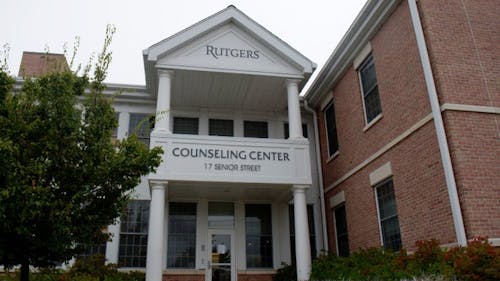Rutgers students, CAPS director weigh in on increased demand for mental health services amid pandemic

The ongoing coronavirus disease (COVID-19) pandemic has negatively impacted student mental health nationwide, leading to an increase in demand for mental health and counseling services, including those offered by Counseling, Alcohol and Other Drug Assistance Program & Psychiatric Services (CAPS), said Steven Sohnle, director of the program.
Sohnle discussed this issue and how the University’s counseling services have grown to accommodate the increase in demand, and several students shared their experiences with mental health and CAPS during this time.
Sophia Rosahl, a School of Arts Sciences senior, said the pandemic has exacerbated their previous issues with mental health as well as almost everyone around them. They said that while there has been an increase in mental health awareness through events and advertising, people still take time to acknowledge their problems and reach out for help.
Rosahl said that connecting with CAPS was a challenge for them, primarily because students can only book appointments over the phone. For students like Rosahl who suffer from anxiety, making the initial phone call is itself a major hurdle, they said.
Due to understaffing, Rosahl said that CAPS therapists can only see students every other week. CAPS offers available weekly group therapy to supplement the private therapy, though not all students are comfortable sharing their issues in a group setting, they said.
“While I'm sure they're all qualified and good at what they do, they can't compete with the RU Screw that is underfunding necessary mental health services,” Rosahl said.
They said that to combat these problems, CAPS should consider hiring more therapists, allowing online booking for appointments and listing mental health resources on their website, including advice on how to find therapy.
Sheaa Amin, a School of Arts and Sciences sophomore, said she also had issues with accessing CAPS, specifically during last spring semester. She said she felt a lack of control during the pandemic, which greatly increased her anxiety levels.
Amin said she has noticed increased mental health issues among many college students during the pandemic, including those concerning health and family. Contending with these issues while still working as a student is a difficult task, she said.
At CAPS, Amin said she felt frustrated by the short-term therapy model they employed as well as the long waiting times in between appointments. Additionally, she said her health insurance did not cover treatment by CAPS’ psychiatry services.
“CAPS needs more support from the school and funding, in my opinion,” Amin said. “Every professor, website and email says to call CAPS in case of a mental health issue, but I do not think they have the sufficient means to provide help for all the students that need it.”
With regards to the waiting times for CAPS appointments, Sohnle said he acknowledges that current times are longer than they would like. He said that during the past year, CAPS has had trouble with higher employee turnover and has not been able to hire enough staff to meet increased student demand, ultimately increasing waiting times for appointments.
To address this issue, CAPS has hired several new clinicians in the past few months, is currently continuing to recruit mental health workers and is expanding its presence within the Student Health centers, Sohnle said.
“Needs assessment is an ongoing process. Filling existing vacancies will increase the availability of services,” he said. “When CAPS is fully staffed, we will assess the demand and our ability to meet it in the context of available resources.”
Additionally, Sohnle said that students in crisis will be seen immediately by a CAPS therapist, and students who want to meet with counselors just once or twice to discuss a specific issue can book a “Let’s Talk” session which typically have short waiting times. CAPS can also help students connect to private therapy that is covered by their insurance, Sohnle said.
He said the greater demand for counseling services is also driven by a positive pattern, which is the decrease in stigma surrounding mental health. Sohnle said that for the past couple of years there has been an increase in students reaching out to mental health services, pointing to the idea that accessing these services has become more accepted.
“Stigma still exists, and reducing it is one of our primary concerns, but many students today are more comfortable talking about and seeking assistance with mental health needs than before,” Sohnle said. “This is great news but does increase demand.”



